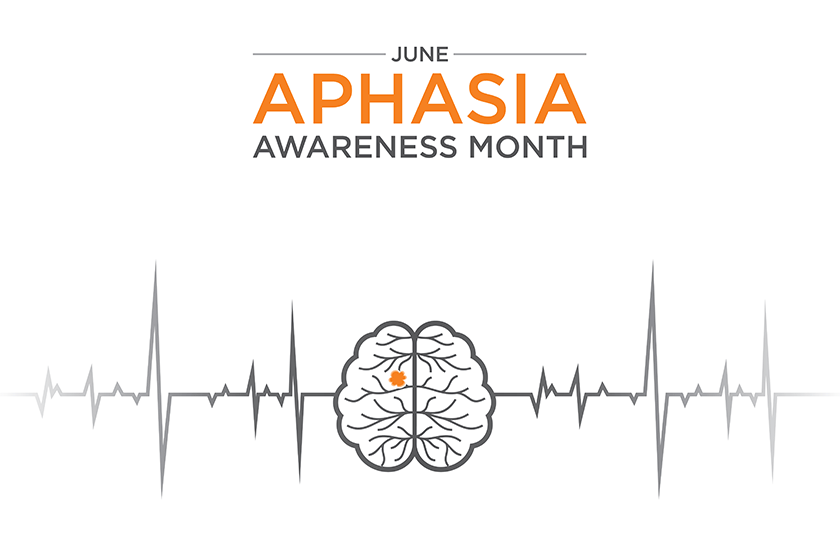When discussing cognitive and communicative disorders, it’s essential to understand the distinctions between aphasia and dementia. Both conditions significantly impact a person’s ability to communicate and function, but they do so in different ways. This blog post will explore the unique characteristics of aphasia and dementia, helping you understand their differences and how each condition is managed.
Understanding Aphasia
Aphasia is a language disorder resulting from damage to parts of the brain responsible for language. It commonly occurs after a stroke or a head injury, but it can also result from brain tumors, infections, or degenerative diseases. People with aphasia may have difficulty speaking, understanding speech, reading, or writing.
The symptoms of aphasia differ based on the location and severity of the brain damage. Common signs include difficulty finding the right words, speaking in short or incomplete sentences, using incorrect or nonsensical words, trouble understanding spoken or written language, and challenges with reading or writing.
Aphasia is categorized into several types based on the specific language abilities affected. Broca’s aphasia, also known as expressive aphasia, results in difficulty forming complete sentences. Speech is often slow and laborious, but comprehension remains relatively intact. Wernicke’s aphasia, or receptive aphasia, allows individuals to speak fluently, but their speech often lacks meaning, and they have difficulty understanding spoken language. Global aphasia is the most severe form, where individuals lose almost all language functions, including speaking, understanding, reading, and writing.
Understanding Dementia
Dementia encompasses a range of symptoms that significantly impair memory, thinking, and social abilities, making daily life challenging. While Alzheimer’s disease is the most prevalent cause of dementia, it can also arise from conditions like vascular dementia, Lewy body dementia, and frontotemporal dementia.
Dementia symptoms progress gradually and worsen over time. Common symptoms include memory loss, particularly recent memories, difficulty with problem-solving and planning, confusion and disorientation, changes in mood and behavior, difficulty with coordination and motor functions, and problems with language, such as finding the right words or following conversations.
Dementia encompasses several different conditions, each with its characteristics. Alzheimer’s disease is characterized by plaques and tangles in the brain, leading to progressive memory loss and cognitive decline. Vascular dementia is caused by reduced blood flow to the brain, often after a stroke or series of strokes. Lewy body dementia involves abnormal protein deposits called Lewy bodies, affecting cognitive and motor functions. Frontotemporal dementia affects the frontal and temporal lobes of the brain, leading to personality changes, language difficulties, and motor symptoms.
Key Differences Between Aphasia and Dementia
While both aphasia and dementia impact communication, their causes, symptoms, and progressions are different. Aphasia is usually the result of brain injury or stroke, whereas dementia is typically due to neurodegenerative diseases or vascular issues. Aphasia primarily affects language abilities, while dementia affects a broader range of cognitive functions, including memory, problem-solving, and motor skills. Aphasia can be sudden and stable, especially if caused by a stroke. In contrast, dementia is progressive, with symptoms worsening over time. In aphasia, language comprehension might remain intact, as in Broca’s aphasia, whereas in dementia, comprehension typically declines along with other cognitive functions.
Treatment and Management
The primary treatment for aphasia is speech and language therapy, tailored to the individual’s needs. Therapy focuses on improving communication skills, utilizing alternative communication methods, and training family members to support the person’s communication efforts. In some cases, medications or surgery might be considered, depending on the underlying cause.
Dementia management involves a combination of medications, lifestyle changes, and supportive therapies. Medications can help manage symptoms but do not cure the disease. Cognitive therapies, physical exercise, and social engagement are crucial in slowing the progression and improving quality of life. Support from healthcare providers, caregivers, and family members is vital.
Supporting Cognitive and Communicative Health
Understanding the differences between aphasia and dementia is important for providing appropriate support and treatment. While aphasia primarily impacts language abilities due to specific brain injuries, dementia involves a broader decline in cognitive functions caused by neurodegenerative diseases. Living with either condition presents significant challenges for those affected and their families. At our community, we are dedicated to enhancing the quality of life through compassionate care, personalized support, and engaging activities.
In our community, we tailor our services to meet the unique needs of each resident. Our experienced team provides individualized care plans, therapy sessions, and daily activities designed to promote cognitive and physical well-being. We strive to create a supportive and nurturing environment where residents can thrive despite their challenges. Contact us to learn how we can assist you or your loved one.







